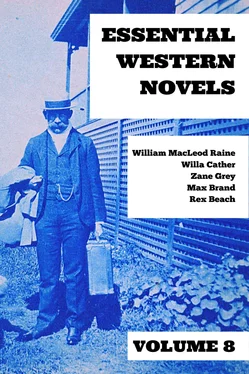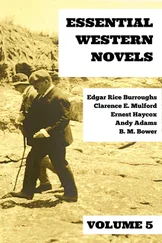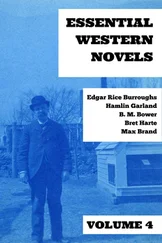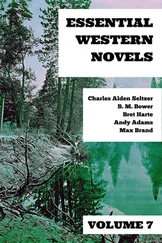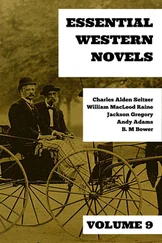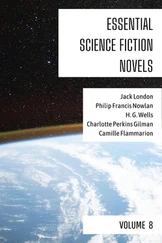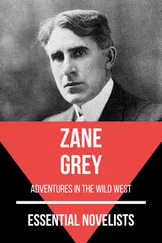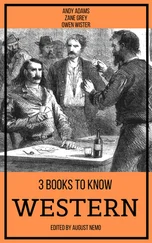But there was also the ideal of individualism. This democratic society was not a disciplined army, where all must keep step and where the collective interests destroyed individual will and work. Rather it was a mobile mass of freely circulating atoms, each seeking its own place and finding play for its own powers and for its own original initiative. We cannot lay too much stress upon this point, for it was at the very heart of the whole American movement. The world was to be made a better world by the example of a democracy in which there was freedom of the individual, in which there was the vitality and mobility productive of originality and variety.
Bearing in mind the far-reaching influence of the disappearance of unlimited resources open to all men for the taking, and considering the recoil of the common man when he saw the outcome of the competitive struggle for these resources as the supply came to its end over most of the nation, we can understand the reaction against individualism and in favor of drastic assertion of the powers of government. Legislation is taking the place of the free lands as the means of preserving the ideal of democracy. But at the same time it is endangering the other pioneer ideal of creative and competitive individualism. Both were essential and constituted what was best in America's contribution to history and to progress. Both must be preserved if the nation would be true to its past, and would fulfil its highest destiny. It would be a grave misfortune if these people so rich in experience, in self-confidence and aspiration, in creative genius, should turn to some Old World discipline of socialism or plutocracy, or despotic rule, whether by class or by dictator. Nor shall we be driven to these alternatives. Our ancient hopes, our courageous faith, our underlying good humor and love of fair play will triumph in the end. There will be give and take in all directions. There will be disinterested leadership, under loyalty to the best American ideals. Nowhere is this leadership more likely to arise than among the men trained in the Universities, aware of the promise of the past and the possibilities of the future. The times call for new ambitions and new motives.
In a most suggestive essay on the Problems of Modern Democracy, Mr. Godkin has said:
M. de Tocqueville and all his followers take it for granted that the great incentive to excellence, in all countries in which excellence is found, is the patronage and encouragement of an aristocracy; that democracy is generally content with mediocrity. But where is the proof of this? The incentive to exertion which is widest, most constant, and most powerful in its operations in all civilized countries, is the desire of distinction; and this may be composed either of love of fame or love of wealth or of both. In literary and artistic and scientific pursuits, sometimes the strongest influence is exerted by a love of the subject. But it may safely be said that no man has ever labored in any of the higher colleges to whom the applause and appreciation of his fellows was not one of the sweetest rewards of his exertions.
What is there we would ask, in the nature of democratic institutions, that should render this great spring of action powerless, that should deprive glory of all radiance, and put ambition to sleep? Is it not notorious, on the contrary, that one of the most marked peculiarities of democratic society, or of a society drifting toward democracy, is the fire of competition which rages in it, the fevered anxiety which possesses all its members to rise above the dead level to which the law is ever seeking to confine them, and by some brilliant stroke become something higher and more remarkable than their fellows? The secret of that great restlessness which is one of the most disagreeable accompaniments of life in democratic countries, is in fact due to the eagerness of everybody to grasp the prizes of which in aristocratic countries, only the few have much chance. And in no other society is success more worshiped, is distinction of any kind more widely flattered and caressed.
In democratic societies, in fact, excellence is the first title to distinction; in aristocratic ones there are two or three others which are far stronger and which must be stronger or aristocracy could not exist. The moment you acknowledge that the highest social position ought to be the reward of the man who has the most talent, you make aristocratic institutions impossible.
All that was buoyant and creative in American life would be lost if we gave up the respect for distinct personality, and variety in genius, and came to the dead level of common standards. To be "socialized into an average" and placed "under the tutelage of the mass of us," as a recent writer has put it, would be an irreparable loss. Nor is it necessary in a democracy, as these words of Godkin well disclose. What is needed is the multiplication of motives for ambition and the opening of new lines of achievement for the strongest. As we turn from the task of the first rough conquest of the continent there lies before us a whole wealth of unexploited resources in the realm of the spirit. Arts and letters, science and better social creation, loyalty and political service to the commonweal,—these and a thousand other directions of activity are open to the men, who formerly under the incentive of attaining distinction by amassing extraordinary wealth, saw success only in material display. Newer and finer careers will open to the ambitious when once public opinion shall award the laurels to those who rise above their fellows in these new fields of labor. It has not been the gold, but the getting of the gold, that has caught the imaginations of our captains of industry. Their real enjoyment lay not in the luxuries which wealth brought, but in the work of construction and in the place which society awarded them. A new era will come if schools and universities can only widen the intellectual horizon of the people, help to lay the foundations of a better industrial life, show them new goals for endeavor, inspire them with more varied and higher ideals.
The Western spirit must be invoked for new and nobler achievements. Of that matured Western spirit, Tennyson's Ulysses is a symbol.
". . . I am become a nameFor always roaming with an hungry heart,Much have I seen and known . . .I am a part of all that I have met;Yet all experience is an arch, where thro'Gleams that untravelled world, whose margin fadesForever and forever when I move.How dull it is to pause, to make an end,To rust unburnished, not to shine in use!
And this gray spirit yearning in desireTo follow knowledge like a shining starBeyond the utmost hound of human thought.. . . Come my friends,'Tis not too late to seek a newer world.Push off, and sitting well in order smiteThe sounding furrows; for my purpose holdsTo sail beyond the sunset, and the bathsOf all the Western stars until I die
To strive, to seek, to find and not to yield."
––––––––

By George Booth
What do we mean by the frontier? And what, by frontier folk? The terms came into vogue when tolerably well-defined lines marked the onset of civilization at the far West, and all beyond was wilderness. Yet to-day, with settlements scattered over all the Territories, the phrase loses none of its significance. It still has a geographical import, and another, deeper than the geographical, suggesting a peculiar civilization and a certain characteristic mode of life. It does not bring to mind those prosperous colonies whose lands, surveyed, secured by good legal titles, and freed from danger of savage inroads, have a permanent population busily engaged in founding homes. It takes us rather to the boundaries of the Indian reservations, along which scattered camps and settlements of white men are fringed; to lands which, though legally open for settlement, are constantly menaced by Indians; to those strange, shifting communities which sometimes, like Jonah's gourd, spring up in a night only to wither away in a day.
Читать дальше
